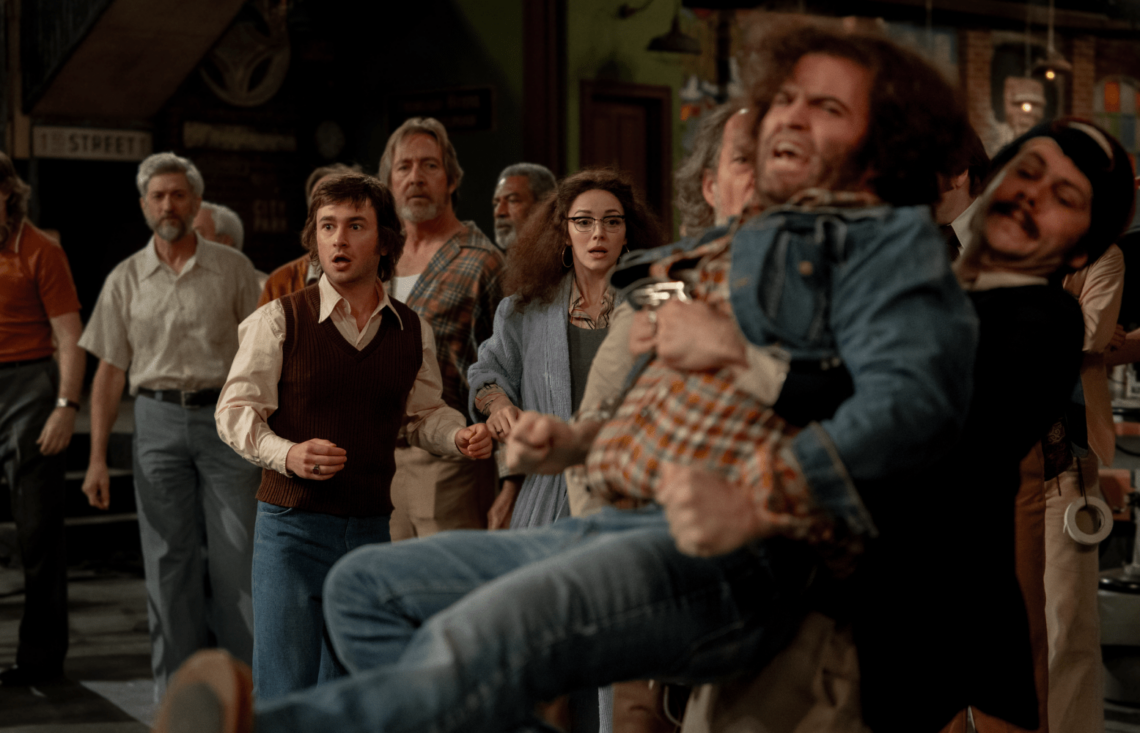Behind the scenes of ‘Saturday Night’: A deep dive into Jason Reitman’s latest film
A fresh take on a legendary show
When I first heard about Jason Reitman’s new film, “Saturday Night”, I was skeptical. The movie, set in the 90 minutes leading up to the first episode of the iconic late-night comedy show in 1975, seemed like a risky endeavor. How could a film capture the essence of a show that took months of planning and countless decisions to create? Yet, as the film hits theaters, it reveals itself to be far more intriguing than I initially anticipated.
The magic of real-time storytelling
“Saturday Night” is a captivating watch, partly due to its real-time, behind-the-scenes chaos. For those who grew up with “Saturday Night Live”, there’s a nostalgic thrill in seeing the early days of the show dramatized. The film’s strength lies in its ability to balance the frenetic energy of a live production with the deeper story of how the show came to be.
Stellar performances and character portrayals
One of the film’s highlights is its cast, who bring to life the legendary figures behind the show. Matt Wood as John Belushi is a standout, capturing Belushi’s anarchic spirit and underlying entitlement. Dylan O’Brien nails Dan Aykroyd’s genial yet verbose persona, while Kim Matula comes close to Jane Curtin’s prim and proper demeanor.
However, not all portrayals hit the mark. Cory Michael Smith‘s Chevy Chase, while capturing Chase’s wit and arrogance, lacks the breezy charm that made Chase a star. Ella Hunt‘s Gilda Radner feels too effervescent, missing Radner’s strong personality. The portrayal of Michael O’Donoghue also falls short, failing to capture his deadpan, cutting edge.
A bull’s-eye portrayal of Lorne Michaels
Despite some missteps, Gabriel LaBelle‘s performance as Lorne Michaels is a triumph. LaBelle, known for his role in “The Fabelmans”, convincingly embodies Michaels’ voice, look, and demeanor. He portrays Michaels as a man juggling the chaos of live television, managing egos, and dealing with network executives who don’t understand or trust the show.
The essence of ‘Saturday Night’
Reitman’s film captures the essence of “Saturday Night” by focusing on the show’s chaotic, pre-air moments. Michaels’ struggle to cut down sketches, manage egos, and keep the show together mirrors the real-life challenges of producing a groundbreaking comedy show. The film’s portrayal of Michaels’ belief in the show, despite not fully understanding what it would become, is particularly compelling.
The revolution of live television
“Saturday Night” was more than just a comedy show; it was a revolution in television. The film highlights how the show brought the offstage aggression and personalities of its cast into the spotlight. The Not Ready For Prime Time Players were fearless, merciless, and unfiltered, injecting a raw, unpolished energy into their comedy.
In one memorable scene, Milton Berle, played by J.K. Simmons, struts backstage, exuding arrogance and challenging the new generation of comedians. His confrontation with Chevy Chase is a powerful moment, showcasing the clash between old and new comedy styles. This scene encapsulates the show’s fearless spirit and its impact on television.
The legacy of ‘Saturday Night’
“Saturday Night” captures the essence of a show that changed television forever. By bringing the offstage drama and personalities to the forefront, the film highlights the revolutionary nature of “Saturday Night Live”. The show’s willingness to push boundaries and embrace chaos set it apart from traditional variety shows, making it a cultural phenomenon.
Did you enjoy this article? Share it on your social channels and let us know your thoughts! Don’t miss out on the latest updates! Follow us on social media to stay informed about the newest releases.

 Italian
Italian







